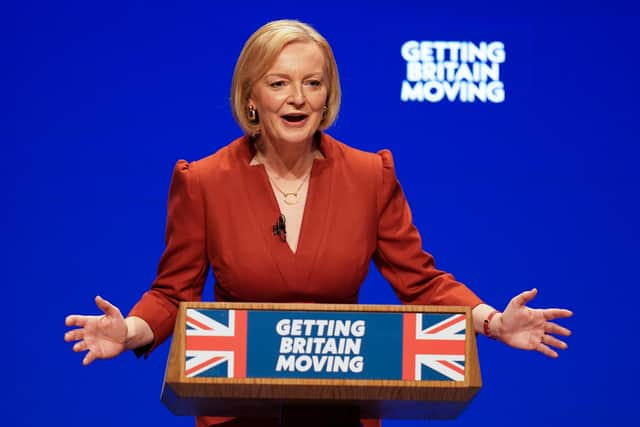Leeds educated Liz Truss comes under fire again for criticising her time at Roundhay School
Liz Truss has spoken several times about her experiences at the school in the 1980 and 1990s,, including during her campaign to be elected Conservative leader.
But she has been roundly criticised by local figures who have accused her of attempting to throw the school “under the bus.”
Advertisement
Hide AdAdvertisement
Hide AdSpeaking at the Conservative Party Conference, Ms Truss said: “I remember growing up in Leeds, where I saw too many children being let down. Let down by low expectations. Let down by a Labour council who were more interested in political correctness than they were in school standards.”


“But I was lucky to have been brought up in a family that cared about education.
“They taught me the value of hard work and enterprise.
“And I stand here today as the first Prime Minister of our country to have gone to a comprehensive school.
“That taught me two things. One is that we have huge talent across the country.
“And two, that we’re not making enough of it.”
Advertisement
Hide AdAdvertisement
Hide AdBut Leeds North East MP Fabian Hamilton attacked Ms Truss on social media for the remarks.
He tweeted: “Disgraceful that Liz Truss has repeated her attacks on Roundhay School and Leeds at Tory Party Conference.
“She says people were ‘left behind.’ She’s right - because the Tories were in power.
“She should be using her first conference at PM to to tackle the cost of living emergency.”
Advertisement
Hide AdAdvertisement
Hide AdMs Truss has also faced controversy for her assertion in the speech that she is the first Prime Minister to go to a comprehensive school.
Theresa May, John Major and Gordon Brown also attended state funded schools.
On the Government website it asserts that Theresa May was educated at Holton Park Girls’ Grammar School - which became Wheatley Park Comprehensive while she was still a student there.
John Major attended a grammar school in the days of the 11+ exam. While not a comprehensive school, grammar schools were state funded with children being segregated according to their ability.